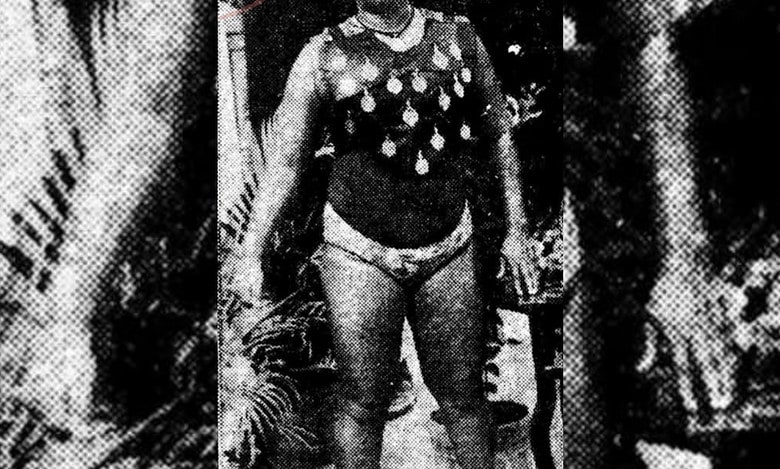Mirzapur / Aligarh, UTTAR PRADESH:
When she was about 30 years old, her larger than life persona brought her global fame and she received many proposals for marriage. She would set one condition for aspiring grooms. “If you can beat me in a wrestling bout, I will marry you,” she would say. Many tried to do so but failed.

In the 1940s and 1950s there was a woman wrestler who had become the darling of the media. The sports lovers of India passionately wanted her to succeed and turned up in large numbers to watch her bouts. She hailed from UP and became famous under the nickname of “Amazon of Aligarh.” She was originally from Mirzapur but later lived in Aligarh and she made the city famous with her deeds.
According to an article in the BBC, the woman wrestler whose name was Hamida Bano rose to stardom when the sport was a male bastion. There was very little scope for women but she often fought against male wrestlers and defeated them. This pugnacious attitude was a huge inspiration for wrestling fans and she gained tremendous popularity.
All aspiring grooms failed
When she was about 30 years old, her larger than life persona brought her global fame and she received many proposals for marriage. But she would set one condition for all aspiring grooms. “If you can beat me in a wrestling bout, I will marry you,” she would say. Many tried to do so but failed.
In 1954, through the media, she issued an open challenge to all male wrestlers in India. Two famed wrestling champions, one from Patiala in Punjab and another from Kolkata took up her challenge and tried to get the better of her. Both ended up being soundly beaten. She then went to Baroda for her third bout against a male champion wrestler.
The city was all agog. Huge newspaper reports talked about her amazing feats. Even the international news agency Reuters gave her coverage. A man named Sudhir Parab who was a child at that time, told the BBC that her arrival in Baroda was advertised through banners and posters. Trucks and motorised vehicles went around the streets announcing her victories and her plans to fight against local champions. By that time she had won more than 300 competitions.
Chota Gama Pahelwan withdraws in fear
At that time the Maharaja of Baroda patronised a wrestler known as Chota Gama Pahelwan. So Hamida and Chota Gama were pitted against each other. But the junior Gama perhaps became nervous and withdrew from the bout stating that he did not want to compete against a woman. Hamida’s fans were left disappointed by this cowardly withdrawal by her rival.
But at this time there were some male chauvinists who were not pleased by the fact that she was regularly defeating male champions. Once Hamida had to approach Morarji Desai who was then the Chief Minister of Bombay State, to complain about an unofficial ban against her. No one wanted to compete against her.
Baba Pahelwan beaten in two minutes
The next man who decided to take her on was another famed grappler by the name of Baba Pahelwan. In less than two minutes Hamida Bano flattened Baba Pahelwan and then raised her arms in victory and screamed: “Is there anyone else in this city who will take my challenge?” Needless to say, she got no reply.
For a contest in Bombay, the Bombay Chronicle newspaper reported that more than 20,000 people bought tickets for her fight against Goonga Pahelwan. But when this man saw the huge crowd, he too turned pale at the thought of losing to a woman in front of everyone. What would happen to his reputation if he lost?
He began to make last minute excuses and demanded more money. The haggling with the organisers went on for hours and the scheduled time passed. When the crowd realised that the bout would not take place, they became enraged and vandalised the premises where the event was to have taken place.
Qurratulain Haider mentioned her in a story
Once the famed Urdu author Qurratulain Haider wrote a short story in which she mentioned the name of Hamida Bano. In the mid-1950s Hamida defeated Russian woman wrestler Vera Chistilin in less than two minutes. But soon after, Hamida decided to leave the wrestling ring for good.
Once she stepped away from the spotlight, she disappeared into the background. Some say she went back to her roots in her native village and lived out the rest of her days selling fruits from a small shop catering to the local population. But the memories that she left behind – that of an unconquered woman who could defeat the strongest men – was cherished and celebrated for many years.
source: http://www.siasat.com / The Siasat Daily / Home> Featured News / by Abhijit Sen Gupta / September 01st, 2023








